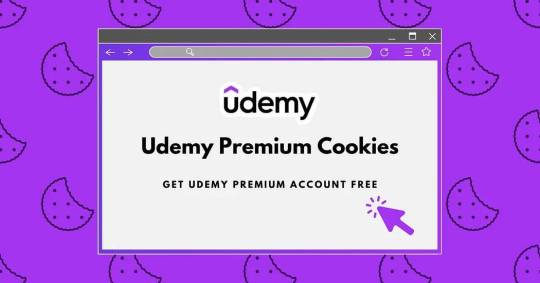#Udemy Like App Development
Explore tagged Tumblr posts
Text
ʜᴏᴡ ᴄᴀɴ ɪ ᴇxᴘʟᴏʀᴇ ɴᴇᴡ ʜᴏʙʙɪᴇꜱ

1. Try Short-Term Challenges
Commit to a 30-day challenge (e.g., sketching daily, learning a new language, or writing short stories).
Apps like Duolingo (languages) or Skillshare (creative skills) can help.
2. Attend Local or Online Classes
Check out community centers, libraries, or platforms like Udemy, Coursera, or MasterClass.
Look for workshops in art, music, coding, or even mixology.
3. Join Clubs or Meetups
Meetup.com and Facebook groups have local hobbyist communities.
Whether it’s board games, hiking, or photography, connecting with like-minded people can be inspiring.
4. Explore DIY & Crafting
Try knitting, woodworking, or resin art.
Platforms like Pinterest and YouTube offer countless DIY tutorials.
5. Get Into Fitness & Adventure
Experiment with rock climbing, kayaking, or yoga.
If you prefer something low-impact, try tai chi or pilates.
6. Explore the Arts
Pick up painting, pottery, or digital art.
Join an improv or theater group if you enjoy performing.
7. Experiment with Food & Drinks
Try baking, fermenting foods, or making coffee art.
Learn mixology and craft your own cocktails.
8. Discover Tech & Gaming
Explore coding, 3D printing, or building electronics.
Get into tabletop RPGs or try game development.
9. Volunteer or Learn a New Skill
Help out at animal shelters, community gardens, or charities.
Consider learning sign language or first aid.
10. Let Randomness Decide
Use a random hobby generator (yes, they exist!).
Write down hobbies on slips of paper, draw one, and commit to trying it.

Be yourself <3




pt. 2??
likes, comments, reblogs and follows are appreciated <3
#clean girl#glow up#self development#self improvement#that girl#soft life#do it for yourself#becoming that girl#it girl#pink pilates princess#hobbies#hobby#ideas#tips and tricks#how to#advice#creative#creative design#creative writing#creative process#creative arts#design#creative inspiration#process#be yourself#self discovery#healing#keep going#self esteem
101 notes
·
View notes
Note
Hello! Do you have any advice on getting into freelance coding or remote jobs in the field? I'm having trouble with my current endeavors of applications and my current customer service job isn't doing me well enough to want to stay, so I'm hoping for progress sooner rather than later. Anything helps, thank you!!
Hiya 🖤
Thanks for reaching out with your question about getting into freelance coding or remote jobs. Making a transition can be challenging, but with dedication and strategic steps, you can definitely progress in your career.
Firstly, consider specializing in a specific field of computer science rather than trying to learn everything. This will help you become an expert in a niche, making you more attractive to potential clients or employers.
The big thing to look at is (1) what specific job do you want? Don't know yet? That's the first thing you need to find out. (2) Found the job you want? Go to this website "roadmap.sh" and click the job title you want and look at the roadmap to become it. (3) Have an idea of what you need to learn? Now study :)
Here are some extra key pieces of advice:

Public Code Repositories
Showcase your coding skills by contributing to public repositories on platforms like GitHub, GitLab, or others. This allows potential employers to see your projects and assess your coding abilities.
Online Certifications
Earn certifications from reputable online courses like Freecodecamp, Codecademy, or SheCodes (if you're a woman). Displaying these certifications on your LinkedIn profile adds credibility for remote work or even freelance work because then clients will trust your skills more if it's back up with evidence (projects and/or certificates).
Links: "Massive List of Thousands of Free Certificates" / "The Udemy courses I use" / "FreeCodeCamp" / "Codecedemy" / "SheCodes" / "Udacity" / "Coursera" / "Google"
LinkedIn Profile
Revamp your LinkedIn profile to reflect your job title. Use a title that aligns with your dream job, and highlight your skills, certifications, and projects. You don't even need work experience OR do what a lot of my developer mates do have no work experience and set your "job" as a self-employed freelance developer... little cheat there~!
Links: "LinkedIn Career Explorer" / "Tips for speaking to/reaching out to Recruiter" / "Tips for Landing Your First Entry-Level Developer Job" / "Career Services for Web Development" / "The Talent Cloud Community: Careers Workshop"
Volunteering
Help someone out with a project for their business or whatever. For example, I helped a guy I met in a programming discord server build his portfolio page for free, but I care more about the experience. Search online for volunteer jobs with your dream job title e.g. Volunteer App Develope, but in your country would be better. The experience you can you can add to your LinkedIn. the project you work on you can add to your resume/experience.
Link: "SkilledUp Life"
Networking
Connect with professionals in your field on LinkedIn, even if you don't know them personally. Growing your network can open up opportunities and expose you to valuable insights. Events in person or online, servers (I found volunteer opportunities here), forums, Twitter (I found some mates on there), Instagram (another place I found developer friends). Networking can even help with building group projects~!
Link: "Tips for speaking to/reaching out to Recruiter"
Project Building
Work on both small and big projects to demonstrate your capabilities. Highlight these projects on your resume and portfolio.
Links: "Building projects after learning a new concept advice" / "Tips from learning using multiple resources" / "Tips on learning programming with ChatGPT" / "Harvard University Free IT Courses" / "The Udemy courses I use" / "Free Programming Books" / "Coding Advice for beginners" / "800 free Computer Science classes"
Online Presence
Share your learning progress and projects on various platforms like Tumblr, Twitter, Instagram, LinkedIn, or YouTube. Employers often appreciate candidates who actively showcase their work and commitment to learning. I made a post for Tumblr coding blogs:
Link: "Codeblr Blog Advice: 8 Blog Coding Post Ideas"
Good luck!!
#my asks#programming#coding#studyblr#codeblr#progblr#studying#comp sci#programmer#student#study life#coding study
43 notes
·
View notes
Text
30 ways to make real; money from home
Making money online from the comfort of your home has become increasingly accessible with the growth of the internet and digital technologies. In 2023, there are numerous realistic ways to earn money online. Here are 30 ideas to get you started:
1. Freelance Writing: Offer your writing skills on platforms like Upwork or Freelancer to create blog posts, articles, or website content.
2. Content Creation: Start a YouTube channel, podcast, or blog to share your expertise or passion and monetize through ads, sponsorships, and affiliate marketing.
3. Online Surveys and Market Research: Participate in online surveys and market research studies with platforms like Swagbucks or Survey Junkie.
4. Remote Customer Service: Work as a remote customer service representative for companies like Amazon or Apple.
5. Online Tutoring: Teach subjects you're knowledgeable in on platforms like VIPKid or Chegg Tutors.
6. E-commerce: Start an online store using platforms like Shopify, Etsy, or eBay to sell products.
7. Affiliate Marketing: Promote products or services on your blog or social media and earn commissions for sales made through your referral links.
8. Online Courses: Create and sell online courses on platforms like Udemy or Teachable.
9. Remote Data Entry: Find remote data entry jobs on websites like Clickworker or Remote.co.
10. Virtual Assistance: Offer administrative support services to businesses as a virtual assistant.
11. Graphic Design: Use your graphic design skills to create logos, graphics, or websites for clients on platforms like Fiverr.
12. Stock Photography: Sell your photos on stock photography websites like Shutterstock or Adobe Stock.
13. App Development: Develop and sell mobile apps or offer app development services.
14. Social Media Management: Manage social media accounts for businesses looking to enhance their online presence.
15. Dropshipping: Start an e-commerce business without holding inventory by dropshipping products.
16. Online Consultations: Offer consulting services in your area of expertise through video calls.
17. Online Surplus Sales: Sell unused items or collectibles on platforms like eBay or Facebook Marketplace.
18. Online Fitness Coaching: Become an online fitness coach and offer workout plans and guidance.
19. Virtual Events: Host webinars, workshops, or conferences on topics you're knowledgeable about.
20. Podcast Production: Offer podcast editing, production, or consulting services.
21. Remote Transcription: Transcribe audio and video files for clients.
22. Online Translation: Offer translation services if you're proficient in multiple languages.
23. Affiliate Blogging: Create a niche blog with affiliate marketing as the primary revenue source.
24. Online Art Sales: Sell your artwork, crafts, or digital art on platforms like Etsy or Redbubble.
25. Remote Bookkeeping: Offer bookkeeping services for small businesses from home.
26. Digital Marketing: Provide digital marketing services like SEO, PPC, or social media management.
27. Online Gaming: Stream your gaming sessions on platforms like Twitch and monetize through ads and donations.
28. Virtual Assistant Coaching: If you have experience as a VA, offer coaching services to aspiring virtual assistants.
29. Online Research: Conduct research for businesses or individuals in need of specific information.
30. Online Real Estate: Invest in virtual real estate, such as domain names or digital properties, and sell them for a profit.
Remember that success in making money online often requires dedication, patience, and the ability to adapt to changing trends. It's essential to research and choose the opportunities that align with your skills, interests, and long-term goals.
#founder#accounting#ecommerce#copywriting#business#commercial#economy#branding#entrepreneur#finance#make money online#earn money online#make money from home#old money#i turn to these cute#disgraced youtuber ruby franke#my mum#money#claims shock report#says terrified brit#easy money
77 notes
·
View notes
Text
Masterpieces in Pixels: The Best of Digital Photo Artwork
When Technology Meets Imagination
Once, the masterpiece was born of brush and canvas. Today, some of the world's most breathtaking compositions begin with a stylus and screen. Welcome to the world of digital art painting, where creativity knows that there is no limit and pixels do not become poetry.
This article is a celebration of the digital renaissance - showing iconic digital photo artifacts, spotting impressive artists, and revealing how the technique is changing the visual stories.
The Rise of Digital Art: A New Chapter in Art History
The development of art has always been powered by equipment—stone, charcoal, oil, and acrylic. The digital era brought a new set of devices: graphic tablets, photo-editing software, and 3D rendering engines.

Why Digital Art Painting Deserves the Spotlight
Critics once rejected digital art as "less real," but the world of art has moved. Today, digital photo artwork is displayed in major galleries, collected as NFTs, and used in gaming, film, fashion, and advertising.
Here’s what makes it stand out:
Versatility: From photorealism to essence, digital equipment suits every style.
Efficiency: Premous, again, and layers use the experiment risk-free.
Exception: Artists worldwide can cooperate, share, and sell their work.
Digital Masterpieces That Inspire
Let's dive into some standout examples that show the emotional and technical depth of digital art painting.
1. “Portrait of the Future” by Artgerm
A hyper-detailed science-fiction portrait that mixes Eastern aesthetics with the Western comic book effect. The signature of the artgerm is possible with the work of the complex layer in Photoshop.
2. “City of Light” by Beeple
One of the most famous digital artists of our time creates a dystopian world with quality like Bipal cinema. Their daily rendering leads the boundaries of digital storytelling.
3. “Dreams in Bloom” by Ross Tran
This colorful, chaotic, and joyful piece shows how digital equipment can reflect an artist's personality. Ross's bold brushstrokes and unique character design make their work immediately recognizable.
Behind the Scenes: How Digital Art Paintings Are Created
Creating a digital work includes more than just software. It is a process filled with vision, technology, and story.
Step-by-step Process:
Sketching the concept —just like traditional art.
Blocking in shapes and color —using layers for flexibility.
Adding depth and lighting—digital brushes simulate texture and light.
Refining details—highlights, shadows, effects, and final polish.

Meet the Masters: Influential Digital Artists
Loish (Lois van Baarle)
Known for its dreamy characters and expressive brushwork, depiction and animation of bridges in a vibrant digital style.
Feng Zhu
Concept artist for games like Star Wars and Transformers, Feng brings cinematic flair to every digital stroke.
Magdalena Pagowska
Their fantasy-themed digital photo artifacts featured a mixture of realism and imagination, often accompanied by ethereal light and flowing texture.
How to Appreciate Digital Art
It is not certain how to read digital paintings. Here are things to see:
Brush technique: Is it painterly, smooth, or textured?
Lighting: Does it evoke a mood?
Composition: How are the elements balanced?
Emotion: What story is it telling?
Digital does not mean. In fact, with repetition and the ability to use it, digital art often captures deep emotional nuances.
Getting Started: Become a Digital Creator Yourself
Inspired? You can try your hand at digital art painting even as a beginner. Here’s how:
Beginner Tools: Try free apps like Krita or use an iPad with Procreate.
Learn the Basics: Study traditional drawing—digital is just a new medium.
Take Courses: Platforms like Skillshare, Udemy, and YouTube are goldmines.
Join the Community: Reddit, ArtStation, and Discord groups provide support and feedback.
The best way to improve? Just keep creating. Even the best artists started with stick figures.
The Digital Canvas: What's Next?
Technology leads the limits of creativity.
AI-assisted painting tools are helping artists generate ideas faster.
Augmented and virtual reality art is becoming more interactive.
NFTs and blockchain have created new art markets and collector experiences.

Celebrating Creativity in the Digital Age
Digital art painting is proof that artistry is not limited by medium. Whether it is painted on a canvas or prepared on a tablet, what matters is the story that tells it, and it is a feeling.
In Pixel, these works reflect the same passion, technology, and surprise that are hanging any oil painting in a museum. So next time you see a digital artwork, look closely - you can gaze into the future of art.
4 notes
·
View notes
Text
25 Passive Income Ideas to Build Wealth in 2025
Passive income is a game-changer for anyone looking to build wealth while freeing up their time. In 2025, technology and evolving market trends have opened up exciting opportunities to earn money with minimal ongoing effort. Here are 25 passive income ideas to help you grow your wealth:
1. Dividend Stocks
Invest in reliable dividend-paying companies to earn consistent income. Reinvest dividends to compound your returns over time.
2. Real Estate Crowdfunding
Join platforms like Fundrise or CrowdStreet to invest in real estate projects without the hassle of property management.
3. High-Yield Savings Accounts
Park your money in high-yield savings accounts or certificates of deposit (CDs) to earn guaranteed interest.
4. Rental Properties
Purchase rental properties and outsource property management to enjoy a steady cash flow.
5. Short-Term Rentals
Leverage platforms like Airbnb or Vrbo to rent out spare rooms or properties for extra income.
6. Peer-to-Peer Lending
Lend money through platforms like LendingClub and Prosper to earn interest on your investment.
7. Create an Online Course
Turn your expertise into an online course and sell it on platforms like Udemy or Teachable for recurring revenue.
8. Write an eBook
Publish an eBook on Amazon Kindle or similar platforms to earn royalties.
9. Affiliate Marketing
Promote products or services through a blog, YouTube channel, or social media and earn commissions for every sale.
10. Digital Products
Design and sell digital products such as templates, printables, or stock photos on Etsy or your website.
11. Print-on-Demand
Use platforms like Redbubble or Printful to sell custom-designed merchandise without inventory.
12. Mobile App Development
Create a useful app and monetize it through ads or subscription models.
13. Royalties from Creative Work
Earn royalties from music, photography, or artwork licensed for commercial use.
14. Dropshipping
Set up an eCommerce store and partner with suppliers to fulfill orders directly to customers.
15. Blogging
Start a niche blog, grow your audience, and monetize through ads, sponsorships, or affiliate links.
16. YouTube Channel
Create a YouTube channel around a specific niche and earn through ads, sponsorships, and memberships.
17. Automated Businesses
Use tools to automate online businesses, such as email marketing or subscription box services.
18. REITs (Real Estate Investment Trusts)
Invest in REITs to earn dividends from real estate holdings without owning property.
19. Invest in Index Funds
Index funds provide a simple way to earn passive income by mirroring the performance of stock market indexes.
20. License Software
Develop and license software or plugins that businesses and individuals can use.
21. Crypto Staking
Participate in crypto staking to earn rewards for holding and validating transactions on a blockchain network.
22. Automated Stock Trading
Leverage robo-advisors or algorithmic trading platforms to generate passive income from the stock market.
23. Create a Membership Site
Offer exclusive content or resources on a membership site for a recurring subscription fee.
24. Domain Flipping
Buy and sell domain names for a profit by identifying valuable online real estate.
25. Invest in AI Tools
Invest in AI-driven platforms or create AI-based products that solve real-world problems.
Getting Started
The key to success with passive income is to start with one or two ideas that align with your skills, interests, and resources. With dedication and consistency, you can build a diversified portfolio of passive income streams to secure your financial future.
2 notes
·
View notes
Text
What is Udemy and Its Features?
Udemy is one of the most prominent online learning platforms in the world, providing individuals with access to a vast array of courses across numerous disciplines. Launched in 2010, Udemy has transformed the way people learn by offering flexible, affordable, and comprehensive educational opportunities to millions globally. Whether you are a professional looking to upskill, a student aiming to enhance your knowledge, or a hobbyist pursuing a new interest, Udemy offers a unique and personalized learning experience.

What is Udemy?
Udemy is an online marketplace for learning and teaching. It allows instructors to create and publish courses in their areas of expertise and enables learners to access these courses on-demand. The platform spans over 250,000 courses across a wide range of topics, including technology, business, arts, health, and personal development. With over 73 million learners, 64,000 instructors, and availability in more than 75 languages, Udemy is truly a global learning hub.
The courses on Udemy are user-generated, which means anyone with expertise in a subject can create and sell courses. This democratization of education enables instructors to monetize their skills while providing students with diverse learning options. From coding and graphic design to yoga and cooking, Udemy caters to a wide variety of interests and professional needs.
Features of Udemy
Udemy’s success lies in its robust set of features that make learning and teaching both accessible and effective. Below, we discuss some of its most notable features:
1. Vast Course Library
Udemy boasts one of the largest collections of online courses available. With over 250,000 courses spanning categories such as business, technology, personal development, and lifestyle, there’s something for everyone. Whether you’re a beginner or an advanced learner, Udemy offers courses tailored to various skill levels.
The platform also stays updated with emerging trends, ensuring learners have access to courses in fields like artificial intelligence, blockchain, and digital marketing.
2. Affordable Pricing
One of Udemy’s standout features is its affordability. Unlike traditional education platforms that charge high fees, Udemy courses are often priced between $10 and $100, with frequent discounts and promotions bringing the cost down further. This affordability democratizes learning, making high-quality education accessible to a global audience.
3. Lifetime Access
A unique feature of Udemy is that learners receive lifetime access to the courses they purchase. This means you can revisit the material as often as needed, even after completing the course. This feature is particularly beneficial for complex subjects, where learners may need to review concepts multiple times.
4. Self-Paced Learning
Udemy allows learners to progress at their own pace. There are no strict deadlines or schedules, making it ideal for busy professionals or students who need flexibility. Whether you have a few hours a day or just 20 minutes during lunch breaks, you can tailor your learning schedule to suit your availability.
5. Wide Range of Formats
Courses on Udemy include a mix of video lectures, quizzes, assignments, and supplemental resources such as downloadable PDFs or slides. This variety of formats caters to different learning styles, ensuring that visual, auditory, and kinesthetic learners can benefit from the platform.
6. Mobile-Friendly Platform
Udemy’s mobile app enhances accessibility by allowing learners to study on the go. Available on iOS and Android devices, the app enables offline downloads, making it easy to learn even without an internet connection. This feature is particularly useful for commuters or those in regions with limited internet access.
7. Certificates of Completion
Upon completing a course, Udemy provides a certificate of completion. While these certificates are not accredited, they can still serve as proof of learning for personal or professional purposes. For example, including a Udemy certificate on your resume or LinkedIn profile can demonstrate initiative and self-driven learning.
8. Instructor Opportunities
Udemy empowers experts by allowing them to create and sell courses. The platform provides tools for video creation, course design, and analytics to help instructors deliver high-quality content. Additionally, Udemy’s revenue-sharing model offers a lucrative opportunity for educators and professionals to monetize their skills.
9. Diverse Language Options
With courses available in over 75 languages, Udemy caters to a global audience. This multilingual support ensures that learners from different regions and linguistic backgrounds can access quality education without language barriers.
10. Udemy for Business
Udemy offers a corporate learning solution called Udemy for Business, which provides organizations with a curated selection of courses to train employees. This feature allows companies to upskill their teams, foster professional development, and address skill gaps efficiently. Businesses can track employee progress and identify areas for improvement using Udemy’s analytics.
Advantages of Udemy
Udemy’s features offer several advantages for both learners and instructors:
Flexibility: Learn anytime, anywhere, and at your own pace.
Affordability: Access quality education without breaking the bank.
Diverse Options: Explore a vast array of subjects and skill levels.
Global Reach: Courses are available worldwide in multiple languages.
Community Support: Learners can interact with instructors and fellow students through Q&A sections and forums.
How to Get the Most Out of Udemy
To maximize your learning experience on Udemy, follow these tips:
Read Reviews: Check course ratings, reviews, and instructor credentials before enrolling.
Take Advantage of Discounts: Wait for sales or promotions to purchase courses at discounted prices.
Engage Actively: Participate in quizzes, assignments, and Q&A sections to deepen your understanding.
Leverage Supplemental Resources: Download additional materials provided by instructors to enhance your learning.
Set Clear Goals: Define what you want to achieve before starting a course to stay focused and motivated.
Conclusion
Udemy has revolutionized online education by making learning accessible, flexible, and affordable for millions worldwide. Its extensive course library, user-friendly features, and inclusive approach to teaching and learning make it a standout platform for personal and professional development. Whether you’re acquiring new skills, exploring a hobby, or training your team, Udemy provides the tools and resources to help you succeed.
While it has some limitations, such as variable course quality and non-accredited certificates, the platform’s benefits far outweigh its drawbacks. By choosing the right courses and actively engaging with the material, learners can unlock immense value from Udemy and achieve their educational and career goals.
#udemycourse#udemyfree#udemycoupon#udemycourses#udemyfreecoupons#udemyfreecourse#onlinelearning#onlinecourses#learning#udemydiscount#courses#skillshare#udemysale#udemydeals#udemycoupons#programming#coursera#free#coding#udemyfreecourses#javascript#off#course#python#udemycouponcode#thinkific#education#html#udemyfreecoupon
2 notes
·
View notes
Text
Digital Entrepreneurship: 10 Zero-Cost Ideas to Kickstart Your Online Business
Discover how to turn your skills and passions into profitable ventures with these 10 zero-cost digital product ideas. From customizable templates to online courses and mobile apps, explore lucrative opportunities in the ever-expanding digital marketplace. Whether you’re an artist, educator, or tech enthusiast, there’s a niche waiting for your unique offerings. Start your journey to digital entrepreneurship today without breaking the bank
1. E-book Guides: Create informative ebooks on topics of interest, such as self-improvement, cooking, or DIY projects. People are always looking for valuable information, and ebooks can cater to their curiosity and desire to learn new skills.
2. Printable Planners: Design printable planners for daily, weekly, or monthly organization. With the increasing demand for productivity tools, individuals are constantly seeking ways to manage their schedules effectively. Printable planners offer a practical solution while allowing for customization based on individual preferences.
3. Digital Art Prints: Showcase your artistic talents by creating digital art prints that can be downloaded and printed for home décor. In today’s visually-driven culture, people are drawn to unique and aesthetically pleasing artwork to adorn their living spaces, making digital art prints a lucrative business idea.
4. Customizable Templates: Develop templates for resumes, business cards, social media posts, and other professional documents. Many individuals lack the design skills or time to create polished documents from scratch, making customizable templates a valuable resource for professionals and entrepreneurs.
5. Online Courses: Share your expertise by offering online courses on platforms like Udemy or Teachable. With the increasing popularity of e-learning, there is a growing demand for courses on various subjects, ranging from photography and graphic design to personal finance and entrepreneurship.
6. Stock Photography: Curate a collection of high-quality stock photos that can be licensed for use in websites, blogs, and marketing materials. Businesses and content creators are always in need of visually appealing imagery to enhance their online presence, presenting a lucrative opportunity for photographers and digital artists.
7. Digital Calendars: Develop digital calendar templates for desktop and mobile devices. In an age where digital organization is paramount, customizable digital calendars offer users a convenient way to plan and manage their schedules efficiently.
8. Mobile Apps: Create simple yet useful mobile apps to solve common problems or cater to niche interests. Whether it’s a fitness tracker, budgeting tool, or language learning app, there is a vast market for mobile apps that provide practical solutions and enhance users’ daily lives.
9. Webinars and Workshops: Host webinars or virtual workshops on topics related to your expertise or interests. With the rise of remote work and online learning, webinars and workshops provide a platform for knowledge sharing and networking opportunities.
10. Digital Music Albums: Produce and distribute digital music albums featuring original compositions or royalty-free tracks. With the increasing popularity of streaming platforms and content creation, there is a demand for high-quality music that can be used in videos, podcasts, and other digital projects.
By leveraging your skills and creativity, you can embark on a digital products business with zero upfront costs, catering to the diverse needs and preferences of today’s digital-savvy consumers.
7 notes
·
View notes
Text

How to Access Trusted Sources for Mobile Development Applications
Finding reliable sources for the latest movies online and mobile development applications for xmltv example can be a bit challenging, especially with the vast amount of information available on the internet. However, there are a few go-to places that you can trust to find accurate and up-to-date resources in this field.
I have compiled a list of some trustworthy platforms and resources where you can get all the information you need.
Online Communities and Forums:
One of the best ways to find reliable sources is by joining online communities and forums dedicated to programming and mobile development.
Websites like Stack Overflow, GitHub, and CodeProject have active communities where developers share their knowledge and experiences. These platforms often have dedicated sections for xmltv information and mobile app development, where you can find tutorials, code samples, and discussions related to your specific needs.
Developer Blogs and Websites:
Many experienced programmers and mobile app developers maintain their own blogs or websites where they share valuable insights and tutorials.
Look for reputable blogs in the programming community that focus on xmltv guide data or mobile development, such as Ray Wenderlich, Android Developers Blog, or iOS Dev Weekly. These blogs often provide in-depth tutorials, code snippets, and updates on the latest trends in the industry.
Online Learning Platforms:
There are several online learning platforms that offer courses on programming and mobile development. Websites like Udemy, Coursera, and Pluralsight have a wide range of courses taught by industry experts.
You can search for XMLT or mobile app development courses on these platforms to find reliable sources that cover the latest techniques and technologies.
Official Documentation:
For a comprehensive understanding of XMLT programming or mobile app development, it's always a good idea to refer to the official documentation provided by the respective platforms or frameworks.
For XMLT, you can refer to the official W3C documentation, which provides detailed information about XMLT standards and specifications. Similarly, for mobile app development, platforms like Apple (iOS) and Google (Android) have official documentation that covers everything from getting started to advanced topics.
Social Media:
Don't underestimate the power of social media when it comes to finding reliable sources for programming tutorials and mobile applications.
Follow influential developers and companies on platforms like Twitter, LinkedIn, and Reddit. They often share valuable resources, updates, and new tools for xmltv listings that can enhance your learning experience.
Remember, while these sources can provide you with reliable information and tutorials, it's always important to critically evaluate the content and verify it with multiple sources. Stay updated with the latest trends in the programming community by subscribing to newsletters or joining relevant mailing lists.
For the latest movies online and mobile development applications for XMLTV, you can visit https://xmltv.host for more updated information. Happy learning!
vimeo
9 notes
·
View notes
Text
Conquer Hangul: Explore the Best Ways to Learn Korean Online
The Korean wave, with its captivating K-dramas, vibrant music scene, and unique culture, has swept the globe. If you've been inspired to learn the language itself, you're in luck! The internet offers a wealth of resources for learn korean online, making it easier than ever to embark on your Korean language journey.
Why Learn Korean Online?
Convenience and Flexibility: Online learning fits into your busy schedule. Learn at your own pace, from anywhere with an internet connection.
Variety of Resources: Explore a vast array of online courses, tutorials, and interactive platforms tailored to different learning styles.
Cost-Effectiveness: Online learning options can be more affordable than traditional classroom settings.
Global Community: Connect with fellow Korean language learners worldwide for motivation and support.
Popular Platforms and Resources for Learning Korean Online
Language Learning Apps: Apps like Duolingo, Memrise, and Lingodeer offer bite-sized lessons, gamified learning experiences, and vocabulary building exercises, making learning Korean fun and engaging.
Online Courses: Platforms like Coursera, edX, and Udemy offer comprehensive Korean language courses, often developed by universities and language experts. These courses may include video lectures, interactive exercises, and assessments.
YouTube Channels: Numerous YouTube channels cater to Korean language learners at all levels. Channels like Go Billy Korean, Learn Korean with KoreanClass101, and Talk To Me In Korean provide beginner-friendly lessons, grammar explanations, and cultural insights.
Korean Learning Websites: Websites like HowtoStudyKorean.com and Korean Wiki offer free lessons, grammar guides, vocabulary lists, and downloadable resources.
Language Exchange Programs: Platforms like HelloTalk and Tandem connect you with native Korean speakers for language exchange. This allows you to practice conversation skills, gain cultural understanding, and build friendships.
Tips for Success in Your Online Korean Learning Journey
Set SMART Goals: Establish Specific, Measurable, Achievable, Relevant, and Time-bound goals to stay motivated and track your progress.
Find a Learning Method that Suits You: Experiment with different platforms and resources to discover what works best for your learning style and preferences.
Incorporate Fun and Engaging Activities: Learning Korean shouldn't feel like a chore. Listen to Korean music, watch Korean shows with subtitles, or try reading Korean webtoons to keep things interesting.
Practice Regularly: Consistency is key! Allocate dedicated time each day or week for active Korean language learning activities.
Connect with the Korean Learning Community: Join online forums, participate in language exchange programs, or connect with other Korean language learners on social media for motivation and support.
Embrace the Challenge!
Learning Korean online opens doors to a vibrant culture and new opportunities. With dedication, the right resources, and a dash of fun, you'll be well on your way to mastering the beautiful and dynamic Korean language!
2 notes
·
View notes
Text

Certainly! Here are some ideas to potentially earn $100 daily:
Freelancing: Offer your skills online on platforms like Upwork, Freelancer, or Fiverr. Whether it's writing, graphic design, programming, or virtual assistance, there are opportunities in various fields.
Online Tutoring: If you're proficient in a particular subject or language, you can offer tutoring services through websites like Tutor.com or Wyzant.
E-commerce: Start an online store selling products through platforms like Shopify, Etsy, or Amazon. You could sell handmade items, print-on-demand products, or source goods from wholesalers.
Content Creation: Start a blog, YouTube channel, or podcast focusing on a niche topic you're passionate about. Once you build an audience, you can monetize through ads, sponsorships, or affiliate marketing.
Social Media Management: Many businesses need help managing their social media accounts. If you're adept at creating engaging content and growing followers, offer your services to businesses in need.
Virtual Assistance: Assist busy professionals or entrepreneurs with tasks like email management, scheduling, research, or customer service remotely.
Stock Photography: If you have a knack for photography, you can sell your photos on stock photography websites like Shutterstock, Adobe Stock, or Getty Images.
Consulting: Leverage your expertise in a particular field to offer consulting services to businesses or individuals seeking advice.
Online Courses: Create and sell online courses on platforms like Udemy or Teachable. If you have expertise in a particular skill or subject, others may be willing to pay to learn from you.
App Development: If you have programming skills, consider developing and selling mobile apps or software solutions.
Remember, success often comes from combining your skills and interests with market demand. It may take some experimentation to find the right fit, but with determination and effort, earning $100 daily is achievable.see more
2 notes
·
View notes
Text
Java Learning Roadmap: From Basics to Mastery
Embarking on a Java learning journey from the comfort of your home offers unparalleled flexibility and convenience. Whether your aspirations lie in web development, Android app creation, or backend coding, Java serves as a robust foundation.

This comprehensive guide outlines a step-by-step approach to help beginners effectively grasp Java concepts and skills from the comfort of their own space.
1. Establish Clear Learning Objectives: Prior to diving into Java learning, take a moment to define your goals. Determine what you aim to achieve with your Java proficiency, whether it's gaining foundational knowledge, tackling projects, or pursuing a career in software development.
2. Select High-Quality Learning Resources: Choose your learning materials wisely. Opt for reputable online platforms such as Udemy, Coursera, or Codecademy that offer well-structured Java courses tailored to beginners. Supplement your learning with books, video tutorials, and interactive exercises to enhance comprehension.
3. Start with Fundamental Concepts: Begin your Java journey by focusing on fundamental principles. Familiarize yourself with core concepts like variables, data types, loops, conditionals, and object-oriented programming basics. Online tutorials and interactive exercises serve as invaluable resources for grasping these foundational elements.
4. Cultivate Regular Practice Habits: Consistent practice is key to mastering Java. Allocate dedicated time each day to code, solve programming challenges, and engage in project work. Platforms like LeetCode, HackerRank, and CodeSignal provide a plethora of coding challenges to hone your skills and build confidence.
5. Engage in Project Development: Apply your newfound knowledge by embarking on real-world projects. Start with simple tasks, such as creating a calculator, a to-do list app, or a basic game. As you grow more confident, tackle more complex projects that align with your learning objectives and interests.

6. Connect with the Java Community: Join online forums, discussion groups, and social media communities to interact with fellow Java enthusiasts and experts. Platforms like Stack Overflow, Reddit, and GitHub offer invaluable opportunities to seek advice, share knowledge, and gain insights from experienced developers.
7. Embrace Constructive Feedback: Don't shy away from seeking feedback on your code and projects. Embrace constructive criticism as a catalyst for growth and improvement. Participate in code reviews, collaborate with peers, and leverage online resources to continuously refine your Java skills.
8. Stay Abreast of Developments: Java is a dynamic language with frequent updates and advancements. Stay informed about the latest trends, tools, and technologies in the Java ecosystem by following industry blogs, attending webinars, and exploring new frameworks and libraries.
9. Explore Advanced Topics: Once you've mastered the basics, delve into more advanced Java topics such as multithreading, networking, and database connectivity. Advanced Java courses, tutorials, and books offer deeper insights into these complex concepts, enabling you to expand your skill set further.
10. Build a Stellar Portfolio: As your Java proficiency grows, assemble a portfolio to showcase your projects and achievements. A well-curated portfolio serves as a compelling demonstration of your skills and capabilities to potential employers or clients. Highlight your standout projects, provide detailed descriptions, and showcase your problem-solving prowess to make a lasting impression.
Conclusion: Learning Java from home is an enriching journey that empowers individuals to unlock countless opportunities in software development. By setting clear goals, leveraging quality resources, practicing consistently, and engaging with the Java community, you can confidently master this versatile programming language and chart a successful career path in technology. Remember, dedication, perseverance, and a genuine passion for learning are the driving forces behind your Java learning journey's success.
#technology#java#javaprogramming#javascript#computerscience#programming#developer#java course#java training#java training course
2 notes
·
View notes
Note
Hiya!! I am taking a coding course at a University. While it's excellent for learning how to use a lot of complicated concepts in programming, we don't really get to do any projects or create anything yet. I was wondering how to get into that. Are there any resources you might recommend?
Hiya!! 💞
Goodie, you want to build your own projects! That's so good, I love project building! Now, it depends what you're coding (the languages + specific area) e.g. are you learning HTML/CSS/JavaScript (Website building) or is it like Python/Java/C# idk but you get what I'm asking for here, the projects you want to learn and build depends on what you're learning in the first place! But I will give some general advice!

🎥 YouTube
I love YouTube so much, there are thousands of videos on that site for any programming language to building pretty much anything! What I did when I started off was the simple search of "[The coding language] beginner project" and then I get to see what I can build. Now if you get stuck on a snippet of code, Google it and there are sites that will explain it for you. Now, don't fall for tutorial hell where you're watching tutorial after tutorial videos but watching them will give you a good foundation!
🔍 Google
Similar to what I said for the YouTube way, you can Google the same question and it will give you a bunch of project ideas, how to even do them and all you can do also is add more on top, what I mean is don't just watch or read about a project idea, see how you can twist it your own style e.g. recently I watched a React.js tutorial on how to make a to-do app! My twist was I styled it different by adding a frog theme. So the tutorial was my foundation and I just added on top of that to further exercise my skills!
🌐 GitHub
Have a hub for all your projects! After creating your projects, you don't just want it sitting on your computer, you can put it online! I use GitHub - it's a place where you can store all your projects, have a save history so you can go back on old code, even share the static webpages you make (using HTML/CSS/JavaScript) with other people online! The Site | How to use GitHub | Check out my GitHub for reference
📚 Online Courses
Many online platforms offer project-based courses. Websites like Udemy, Coursera, Codecademy and FreeCodeCamp can guide you through creating practical projects step by step. I use Udemy for learning and there are courses that are like "Build 9 web development projects blah blah blah" they're actually really good! BUT you do have to pay for them but if you can't find a good project on YouTube to follow or you can visualise or understand the articles online on how to build one, I suggest getting a course because someone teaches you how to make the project. Udemy is fairly cheap during their sales, going down from £59.99 to £10.99!
🤗 Collaboration
Reach out to classmates to build together, someone is bound to have an idea for something! Collaborative projects not only expand your skill set but also let you learn from others. Great skill to have! You can even collab on GitHub projects - which I am doing right now with people I've met through Tumblr (checkout our project)!
Remember, Rome wasn't built in a day! Start with small projects, gradually challenging yourself with larger ones. The journey of creating is just as exciting as the finished project itself. Happy coding! 😎🙌🏾💻💗

43 notes
·
View notes
Text
Complete your research with new data . . . . . . .
Improving personality is a multifaceted process that involves various factors such as self-awareness, emotional intelligence, communication skills, and interpersonal relationships. While there isn't a single "world's best" data set specifically designed for improving personality, there are several reputable resources and tools that can aid in this endeavor:
1. Personality assessments: Tests like the Big Five Personality Test or the Myers-Briggs Type Indicator (MBTI) provide insights into different aspects of personality, helping individuals understand their strengths, weaknesses, and areas for development.
2. Psychological research: Academic journals and articles in psychology provide valuable information on personality traits, behaviors, and development. Websites like Google Scholar or PsycINFO can be used to access research papers on personality psychology.
3. Self-help books and resources: Books like "The 7 Habits of Highly Effective People" by Stephen Covey or "Emotional Intelligence" by Daniel Goleman offer practical advice and strategies for personal growth and development.
4. Therapy and counseling: Working with a licensed therapist or counselor can provide personalized guidance and support in addressing specific personality-related challenges or goals.
5. Online courses and workshops: Platforms like Coursera, Udemy, or LinkedIn Learning offer courses on various aspects of personal development, including communication skills, emotional intelligence, and leadership.
6. Personal development apps: Mobile applications like Headspace (for mindfulness and meditation), Duolingo (for language learning), or Habitica (for habit formation) offer interactive tools and resources for improving different aspects of personality and behavior.
Remember, improving personality is a gradual and ongoing process, and it's essential to explore and experiment with different resources and approaches to find what works best for you.
#research#off topic#across the spiderverse#blogs#blog writing#donald trump#rwby#super mario#taylor swift#the mandalorian#the owl house#wally darling#yellowjackets#ted lasso
5 notes
·
View notes
Text
Project Driven Learning - Dumped in notion today's morning😅
Vision
[ ] Job But in a good organization that I can be proud of
[ ] Worked for interesting companies at the beginning of my career which are also easier to get into and can provide valuable experience and a learning environment
[ ] I want to build visionary solutions for an organization like Sundar Pichai did for Google.
Projects
[ ] Meaningful projects - projects that I want to use myself
[ ] Find clone development projects of popular apps
[ ] I'll just have to build Just good enough projects
[ ] Project Matrix - Value / Complexity / Skills / Scope
[ ] Projects that are not just learning coding and development but also cloud computing and other skills
[ ] Don’t just build what you are passionate about but build what resonates with the target audience for which you are going to be applying for
[ ] What’s the enterprise-level business problem for which a solution can be coded equivalent to the exercises I’ve done from the book
[ ] Enterprise level Solving some Business Problems
System
[ ] Build the developer's Brain
[ ] Setting up a system to efficiently complete projects after projects
[ ] Build using AI and Google → Do the same projects using tutorials → Build a similar project of my own on my own
[ ] Keep reflecting to improve the project system and workflow
[ ] What are the outcomes of working on that project?
[ ] Pivot when projects not working or when gotten stuck
[ ] Which projects to take
[ ] Each project must have Skill/ challenge/ value/ purpose criteria
[ ] aligned with your immediate goals, if not add to the project backlog
[ ] Create mini frameworks to build project-efficient, effective and robust solutions.
[ ] Learn from the experts - So many online have built projects with so many functional things
[ ] How they approach building a new project
[ ] How they plan to Strategically set up for success
[ ] How they start a project from scratch
[ ] How do they plan architecture?
[ ] Build a project-building system and improve it along the way while building and learning
Resources
[ ] Theory management by reflecting on the progress of the project
[ ] Cross-check the concepts learnt in the theory
[ ] Find books & courses with enterprise-level application project
[ ] Full in-depth tutorials with examples
[ ] Reverse engineer Portfolios and Github
[ ] Research the expert people in building projects.
[ ] Medium, Github contributors
[ ] Udemy SDE project tutorials
[ ] Workshop → Software Development
[ ] Job boards require analysis to practice skills for software engineering
[ ] Agile certification
[ ] Cloud Certification
[ ] Software development online communities to ask for help and feedback and get to know about new things
High-Quality Questions
[ ] How to become a GitHub star
[ ] How to become an open-source star
[ ] what it takes to create a software from scratch till deployment
[ ] How to become a modern software engineer
[ ] What are the skills apart from coding and development?
[ ] What skills to acquire to go from to great engineer
Profession
[ ] Gather a network of support system
To help out of the stuck zone
Get feedback on stuck projects
[ ] Find a few developer friends
[ ] Ask them if they have built projects and hosted them on GitHub
[ ] Ask them to give feedback on my progress & help me make it functional
[ ] Software development online communities to get to know about new things
2 notes
·
View notes
Text
Offer Tips And Guidance For Aspiring Web Developers

Web Development Career Advice: Offer tips and guidance for aspiring web developers, including learning resources, career paths, and job market insights.
Web development is an exciting and dynamic field that offers countless opportunities for aspiring developers. Whether you’re just starting your journey or looking to advance your career, this article provides valuable advice and guidance to help you thrive in the world of web development.
1. Learn Continuously
Web development is constantly evolving, with new technologies, frameworks, and best practices emerging regularly. To stay relevant and competitive, it’s essential to commit to lifelong learning. Here are some tips:
Online Courses: Platforms like Udemy, Coursera, edX, and Codecademy offer a wide range of web development courses, from beginner to advanced levels.
Documentation and Tutorials: Read documentation and follow tutorials for the technologies you’re interested in. Official documentation is a valuable resource.
Books: Invest in web development books that cover fundamental concepts and provide in-depth knowledge on specific topics.
Online Communities: Join developer forums, participate in discussions, and ask for help when needed. Sites like Stack Overflow and GitHub are great places to start.
2. Choose Your Path
Web development offers various career paths. To determine which one aligns with your interests and goals, consider the following options:
Frontend Developer: Focuses on the visual aspects of websites, including HTML, CSS, and JavaScript.
Backend Developer: Works on server-side development, handling databases, servers, and business logic.
Full-Stack Developer: Manages both frontend and backend, offering a comprehensive understanding of web development.
Specialized Roles: Consider roles like mobile app development, DevOps, or UI/UX design, which require specific skills.
3. Build a Strong Portfolio
A portfolio is your professional identity. It showcases your skills, projects, and capabilities to potential employers or clients. Here’s how to create an impressive portfolio:
Include Diverse Projects: Showcase a variety of projects that highlight your versatility and expertise.
Keep It Updated: Regularly add new projects and skills to your portfolio.
Detail Your Process: Explain the problem, solution, and technologies used in each project.
Share Your Code: Provide links to GitHub or other version control repositories to demonstrate your coding skills.
4. Gain Practical Experience
While learning theory is essential, practical experience is equally crucial. Here’s how to gain hands-on experience:
Freelance Work: Take on freelance projects to apply your skills in real-world scenarios.
Open Source Contributions: Contribute to open-source projects to collaborate with experienced developers and improve your skills.
Internships: Internships provide valuable industry experience and the chance to learn from professionals.
5. Networking
Building a strong professional network can open doors to job opportunities and collaborations. Here’s how to network effectively:
Attend Meetups and Conferences: Participate in web development events to meet like-minded individuals.
Online Communities: Join forums, Slack groups, and social media channels dedicated to web development.
LinkedIn: Create a professional LinkedIn profile to connect with industry peers and potential employers.
6. Stay Informed About the Job Market
Web development job trends can vary by region and industry. Stay informed about the job market by:
Research: Explore job postings on various job boards to understand employer expectations and trends in your area.
Consult Industry Reports: Industry reports and surveys provide insights into in-demand skills and salary trends.
7. Soft Skills Are Important
In addition to technical skills, soft skills like problem-solving, communication, and teamwork are highly valued by employers. Cultivate these skills to become a well-rounded developer.
Conclusion: Your Journey to Web Development Success
Web development is a dynamic and rewarding field, offering opportunities for those with passion and determination. By continuously learning, building a strong portfolio, gaining practical experience, networking, and staying informed about the job market, you can embark on a successful web development career.
Remember that success in web development requires commitment and persistence. Keep learning, adapt to changes, and stay passionate about creating innovative web solutions. With dedication, you can thrive in this exciting and ever-evolving industry.
Source:
#kushitworld#saharanpur#india#itcompany#seo#seo services#webdevelopment#digitalmarketing#websitedesigning
3 notes
·
View notes
Text
The Best Programming Languages For Beginners

When choosing the right programming language, it’s essential to consider your goals and career. You want to make sure that you choose a programming language that is both in demand and easy to learn. Python is an ideal choice for beginners because it reads like English and has a simplified syntax. It’s also versatile and can be used for anything from web development to software development.
Python
Python is a popular general-purpose programming language that’s easy to learn for beginners and widely used in web development, machine learning, art, automation, and more. It also has a vast community of resources that are available to new programmers.
Java is another widely used programming language, especially for mobile app development. It’s used at companies of all sizes (including HubSpot!) and is one of the easiest to learn if you want to develop for a variety of platforms.Better is to click here or visit our official website to know about Programming question answer.
C is an older programming language but still a good choice for beginners because it’s more “machine-level” and gives you the lowest-level control over computer hardware. It’s also the most common base for other languages, like C# and Ruby.
Java
Despite being not as beginner-friendly as Python, Java is a good programming language to start with. It's a general-purpose programming language with a versatile library and free online tutorials.
It's also a cross-platform language, which makes it suitable for mobile and desktop applications. It's the language of choice for Android development and used in a number of enterprise-level software applications.
C is one of the oldest languages and forms the basis for modern languages like Python, Java, and JavaScript. However, it has a low level of abstraction and requires that code is compiled (translated into machine-readable code) before it can be run. This can make it difficult for beginners to understand. Moreover, its syntax can be confusing. But, it's an excellent foundation for more advanced language learning.
Many people are interested in learning programming, but choosing the best language can be intimidating. Luckily, there are plenty of resources to help you get started. You can learn the basics of multiple languages with a coding boot camp, such as the Georgia Tech Coding Boot Camp, which offers a variety of courses including HTML, JavaScript, and jQuery.
Other popular languages include C, which is a general-purpose, compiled language that’s widely used in back-end software applications like web servers. Python is a versatile programming language that’s easy to learn for beginners and can be used in any application. Ruby is a dynamic, object-oriented language that’s commonly implemented using the Rails framework. Its concise syntax and convention-over-configuration approach makes it easier to build and deploy apps.
Perl
Perl is a high-level dynamic general-purpose scripting language. It is popular among system administrators for its text-processing capabilities, specifically its own in-built version of regular expressions. It is also used for web development and GUI programming.
Beginners can start learning the basics of the programming language by following the free online courses offered on Udemy. These courses begin with basic theory and then move on to specific aspects of the language. They include topics such as lists, arrays, and subroutines. They also cover how to handle errors in coding. Perl has a large community of developers, with over 230 local groups, mailing lists and support/discussion websites. It is also open source and supports more than 25,000 extension modules on CPAN. This flexibility makes it an ideal programming language for beginners.
HTML
Computer programming allows us to create the software and applications that make our lives easier, more entertaining, and more efficient. But deciding which language to learn can be a difficult choice for beginners, particularly when there are so many options available.
youtube
Programming languages may seem different on the surface, but they all have similar structures and features. This means that whichever language you choose to learn, you’ll be learning important coding concepts that will be applicable to any other languages you might decide to explore later on.
Before deciding which programming language to learn, it’s important to consider your goals and current skill level. Once you’ve identified your goals, it’s easy to narrow down your options and find the best programming language for beginners.
2 notes
·
View notes